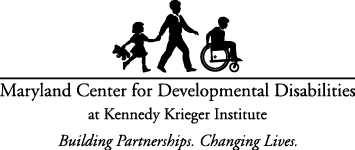Researching COVID-19's Effect on People with Autism with SPARK
September 7, 2020

|
Members of the Kennedy Krieger Institute UCEDD were part of a team effort to research the effects of the pandemic on people with autism and to communicate coronavirus-related information this year.
The Autism Research and Engagement Core of Kennedy Krieger's Maryland Center for Developmental Disabilities is working with SPARK, the nation's largest autism research study.
SPARK, a project of the Simons Foundation Autism Research Initiative, has enrolled about 230,000 people with autism and their family members. Participants answer medical and behavioral surveys and give DNA samples, which SPARK analyzes in order to uncover different genetic changes related to autism. SPARK also has a program that matches families with research studies they may want to join. The SPARK Research Match program is free to researchers and families.
In response to COVID-19, SPARK has researched the effects of the pandemic on children and adults with autism, and their families, throughout the nation. Research papers have been sent for publication review. Also, SPARK has published articles and information about the pandemic, and many other topics related to autism, on its website, www.sparkforautism.org.
People with autism, and their families, may join SPARK online or at one of more than 30 clinical sites at medical schools and autism research centers across the country.
Some of these SPARK clinical sites can be found at institutions that also have a University Center for Excellence in Developmental Disabilities Education, Research, and Service (UCEDD), such as Cincinnati Children's Hospital Medical Center, Montefiore Medical Center, Kennedy Krieger, and the UC Davis MIND Institute.







